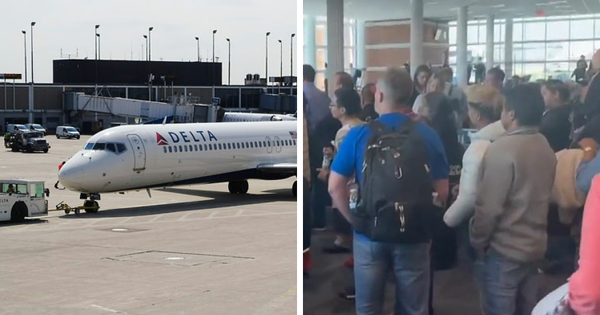Hundreds of barbershops have been targeted by police in a three-week crackdown on money laundering and modern slavery.
Officers visited 265 cash-intensive premises across England and Wales, including nail salons and vape shops, with 10 shops shut down and further closures expected, the National Crime Agency (NCA) said.
Operation Machinize targeted the venues in an effort to tackle “high street crime” and prevent criminal gangs from using cash-intensive businesses to conceal the proceeds of crime, according to the NCA.
The law enforcement agency said the crackdown resulted in 35 arrests, and 97 individuals suspected to be victims of modern slavery were placed under police protection.
“We know cash-intensive businesses are used as fronts for money laundering, facilitating some of the highest harm and highest impact offending in the UK,” said Rachael Herbert, deputy director of the National Economic Crime Centre at the NCA.
“We have seen links to drug trafficking and distribution, organised immigration crime, modern slavery and human trafficking, firearms, and the sale of illicit tobacco and vapes.
“Operation Machinize targeted barbershops and other high street businesses being used as cover for a whole range of criminality, all across the country.”
During the course of the operation, which involved 19 different police forces and regional organised crime units, officers secured freezing orders over bank accounts totalling more than £1 million.
They also seized more than £40,000 in cash, some 200,000 cigarettes, 7,000 packs of tobacco, and more than 8,000 illegal vapes, the NCA said.
Officers also found two cannabis farms containing a total of 150 plants.
The NCA estimates that £12 billion of criminal cash is generated in the UK each year.
Read more: Are barber shops the latest front for London crime gangs?
Recent data from the Office for National Statistics shows the number of hairdressing, barber and beauty spots in London has risen from 5,930 in 2015 to 8,915 in 2024.
Last month, Justine Carter, the director of the modern slavery charity Unseen, told the Standard that the rapid increase in the number of barber shops across the capital means “there is an opportunity arising for people to be exploited”.
She warned: “We have been keeping an eye on [barber shops] and most of what we see is labour abuse. But there is that potential of it tipping into modern slavery.”
Ms Carter, who led the development of the 2015 Modern Slavery Act, also warned that Unseen had witnessed an uptick in cases at restaurants and takeaways in recent months.
Over the past three years, several major crime rings have been linked to London barber shops. Hammersmith barber Tarek Namouz, who owned Boss Crew Barbers, was sentenced to 12 years in prison for sending £11,000 to fund terrorist activity in Syria in 2022.
A people-smuggling plot was also uncovered at a barber shop in Colindale the same year. Gul Wali Jabarkhel was jailed for 10 years after offering lorry drivers thousands of pounds to illegally bring people into the UK across the Channel.
Meanwhile, former barber Hewa Rahimpur was sentenced to 11 years behind bars for buying boats for up to 10,000 migrants so they could cross the Channel into the UK. He had run a barber shop with a friend in Lewisham before he began selling sweets and tobacco from a kiosk in Ilford.
Elsewhere, CSG Barbers in Lewisham was exposed to be an illegal hideout and DIY casino used by two Albanian brothers running vast amounts of cocaine from London up into the Midlands in March 2022.
For nearly a year, the “Eddie line” led by brothers Edmund and Edward Haziri ran drugs up to Swadlincote, north-west Leicestershire and east Staffordshire. The brothers were ultimately both jailed for 15 years, alongside eight others connected to the drug’s line.
Following Operation Machinize, the NCA said in a statement: “Cash-intensive businesses such as barbershops, vape shops, nail bars, American-themed sweet shops and car washes are often used by criminals to conceal the origins of illicit cash.
“Crime gangs use them to enter cash into the financial system, mixing legitimate funds with criminal profits to hinder subsequent law enforcement investigations.
“They are known to buy such businesses using the proceeds of crime, which provides them with a legitimate income and opportunities for money laundering.”
Security minister Dan Jarvis said: “High street crime undermines our security, our borders, and the confidence of our communities, and I am determined to take the decisive action necessary to bring those responsible to justice.
“This successful NCA-led operation highlights the scale and complexity of the criminality our towns and cities face and demonstrates our collective determination to make our streets safer, a key pillar of this Government’s Plan for Change.
“We will continue to support the NCA, and other law enforcement partners, as we make the UK an even more hostile environment for organised crime.”







